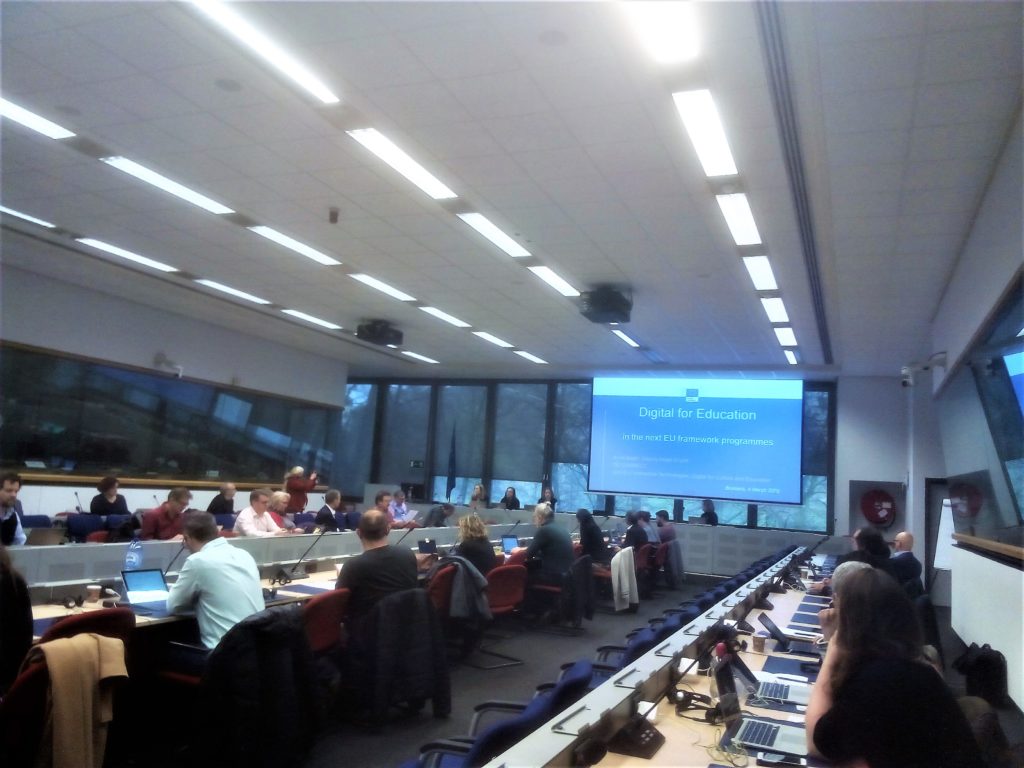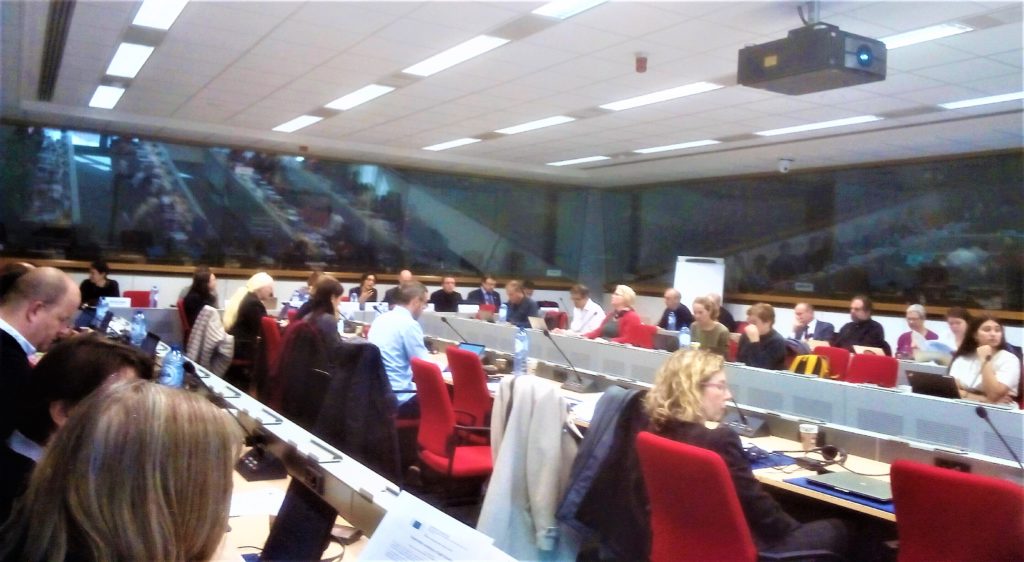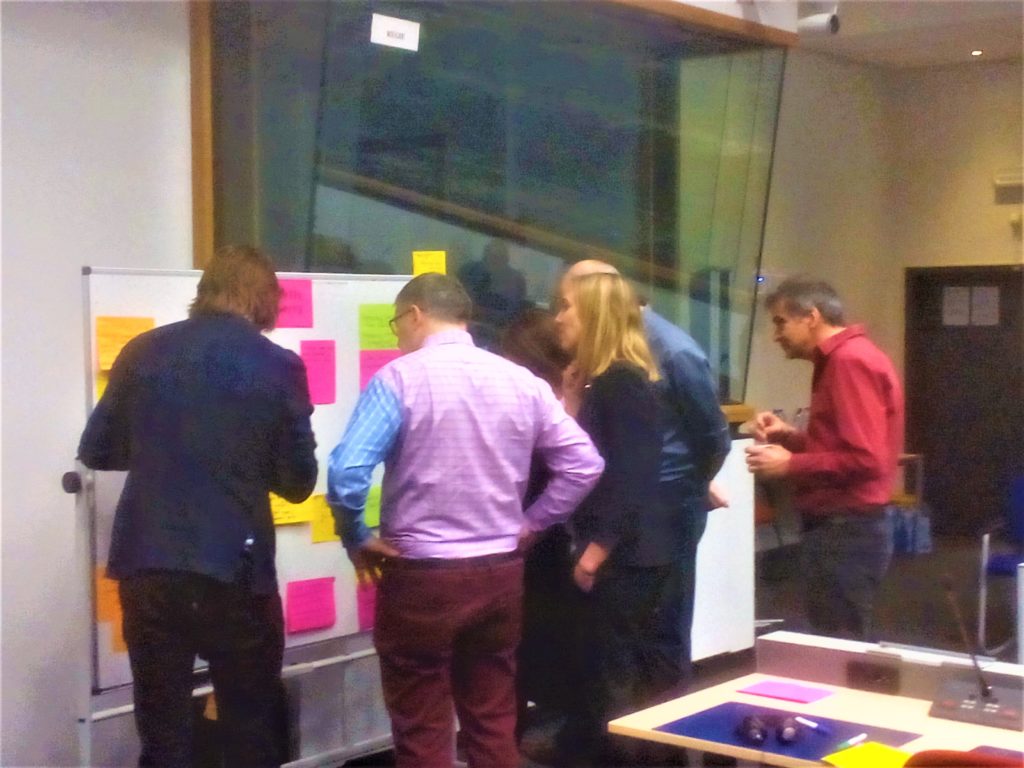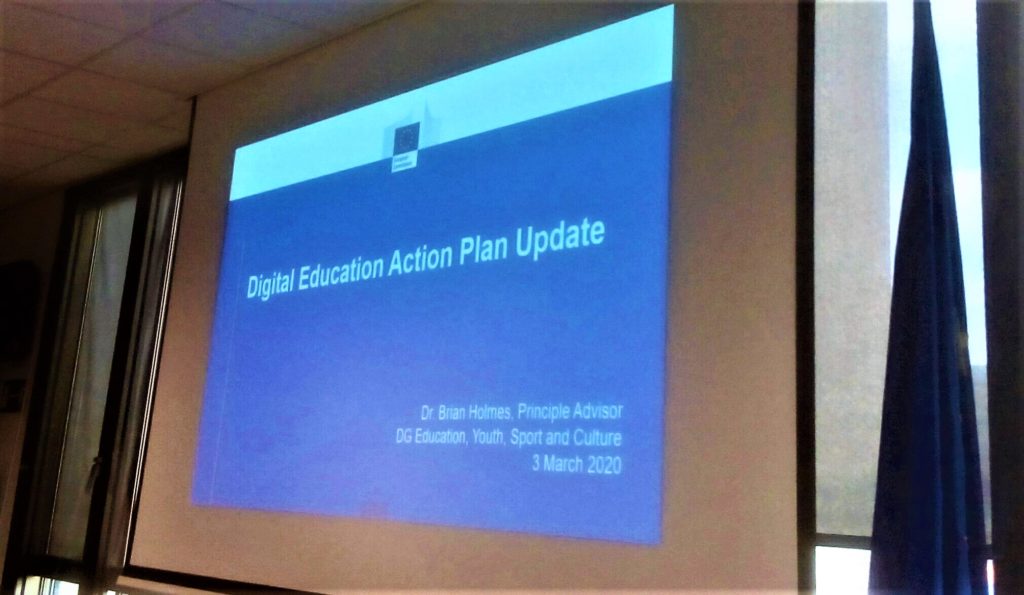EU Digital Education Stakeholder Workshop took place in Brussels
09/03/2020

European Commission’s Directorate General for Communications Networks, Content and Technology (DG CONNECT) hosted a stakeholder workshop in Brussels on 3 and 4 March 2020. Experts from a wide range of domains, such as technology-enhanced learning (TEL), artificial intelligence (AI), pedagogics, and all fields of the education sector (formal, non-formal, informal), among others, gathered to discuss about the prospective European funds for digital education; namely, Horizon Europe and Digital Europe. EARLALL Secretariat took part in the discussions and contributed to the debate about linking local needs to the use of specific digital learning tools.
Representatives from the European Commission (DG CONNECT and DG EAC, Directorate General for Education and Culture) assessed the implementation of the Digital Education Action Plan (2018-2020), which focuses on primary, secondary and tertiary education, and anticipated the need of a lifelong learning approach for a new plan to be presented in the second term of 2020. This initiative is expected to cover a longer period (2021-2027) and to include reinforced funding measures. Main funding opportunities for the topic during the next funding period (multiannual financial framework 2021-2027) will be related to Horizon Europe and Digital Europe, in addition to Erasmus+. While Horizon Europe will focus on achieving a European Research Area, promoting innovation in all its possibilities, and specifically Digital Education under Pillar 2 (“Global challenges and competitiveness”), Digital Europe will seek to deploy and upscale best practices identified under Horizon Europe projects, with a more strategic orientation.
Some best practices from the latest funding period were showcased during the workshop, such as Horizon 2020 projects DEL4ALL, IMPACT EdTech, NEXT-LAB, STORIES and BEACONING, along with the educational tools that have been developed under the umbrella of EUROPEANA, a foundation established by the European Commission to foster the digitalisation of European cultural heritage. The EU Code Week was also introduced, involving grass-root level organisations and schools in the promotion of code learning and digital literacy at school level.
Then, open sessions followed to allow the exchange of ideas and input gathering for the future strategy. Teachers were at the centre of the debate, and key discussions tackled their role in digital education scenarios, their motivation to use technology and the added value that these innovations have for them, along with upskilling and engagement opportunities. Furthermore, the availability of resources, the autonomy and capacity of schools, attitudes (from parents, teachers, school communities, students, etc.) towards the use of technology for learning purposes, and sustainability were other topics under discussion during the event.
Key messages pointed at a transition “from digital ecosystems to a digital landscape”, joining the dots to make digital education a transversal topic, and the need of focusing on the (adequate) use of technology rather than on technology itself as the true catalyser for innovation. On the other hand, raising awareness among the education community about all tools available to increase inclusion was the main challenge identified.
Useful links
- Digital Education Action Plan 2018-2020
- PPT presentations from the workshop
- Digital Skills and Jobs Coalition
- EU Code Week







